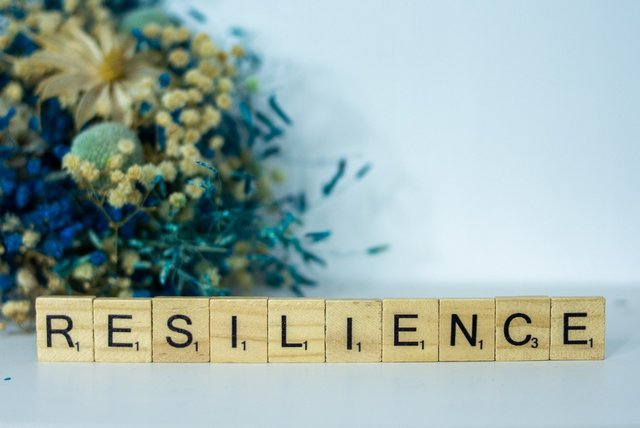
Author: @madridbg, via Power Point 2010, using own domain image. Alex Shute
Greetings and welcome dear readers, by means of the present delivery I would like to share with you, a few lines of reflective writing that allows us to understand the importance of resilience in our life, since in a certain way this will be the guarantee of achieving success or failure in our purpose.
In this sense, and by way of entering into context, it is necessary to understand that the term resilience refers to a psychological process that allows us to adapt to adverse situations that arise in our daily lives, so that we are able to obtain positive results through them.
Therefore, it is necessary to understand that there are many external factors that are present in the approach of this definition and that condition the capacity and functioning of a person, among these factors we can find those processes or relationships with family, religion, politics, culture, among others, which in a certain way exert inherence in our cognitive model, generating negative disturbances that we must learn to control and remedy in order to be resilient during the process.

Public domain image. Author: David Clode
Therefore, and based on the above, we must learn to adapt to change, leaving aside the comforts that we may have and think that times change as well as the opportunities that each of the people of this vast planet can have.
In this sense and as an example of the above, I would like to share a complex biological process that derives from the ability of some species to adapt to temperature changes (homeostasis) which is a mechanism of adaptation and survival for them, however, despite being equipped with this set of self-regulatory phenomena that allows maintaining the internal balance of the organism, comfort and resistance to change sometimes make this adaptation useless.
Let us analyze the following biological process:
If we place a frog in a container with water, we will notice that it will be like a fish in a river (comfortable), however, if we begin to slowly heat the container, we will notice that the frog will modify its body temperature according to its environment and as the temperature continues to increase, the self-regulating phenomena of the amphibian will also be exerting its adaptation, so the species will assume that no change is occurring in its environment.
In this sense, the species will continue adapting to the change in temperature, but unfortunately when the water is about to reach its boiling point, i.e. 100 °C, is when the frog realizes it needs to get out of the container and tries to jump, to its surprise the body does not respond, since it has exhausted all its energy through the regulation of body temperature and consequently the animal ends up dying.

Public domain image. Author Couleur
Based on the above scenario, I would like to ask you who killed the frog? And anticipating some answers that will suggest that it was the hot water, I dare say that the death of the frog was caused by the inability of the species to decide in time when to jump.
In this sense, you must understand that changes are just around the corner and that as individuals we must learn to adapt despite the circumstances, making the right decisions at the right time, always focused on what we want to achieve in our lives, so that what happened to the poor frog does not happen to us.
Remember that he who waits despairs and in this process we can run out of strength.
OF INTEREST


Grateful with the community @project.hope and with all the management team of the same one that they motivate us to continue working in a mutual and balanced growth.

